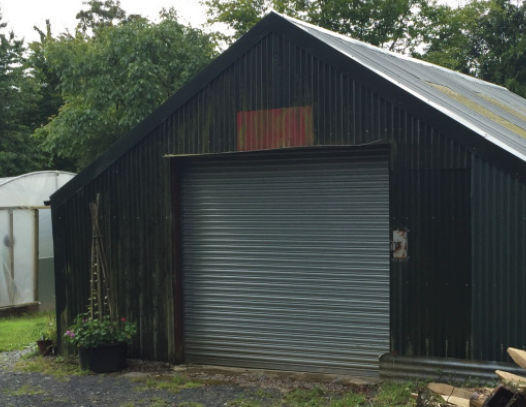 AN APPLICATION to convert a steel shed into a dwelling was rejected by Carmarthenshire County Council’s planning committee, although it had received support from members of the community and the local County Councillor.
AN APPLICATION to convert a steel shed into a dwelling was rejected by Carmarthenshire County Council’s planning committee, although it had received support from members of the community and the local County Councillor.
However, it was suggested by officers that allowing permission could lead to future planning decisions being challenged.
The application sought to convert a steel portal shed, which was constructed in 2006 for storage purposes, into a two-bedroom dwelling to enable the applicants to live on their market garden. However, the site, between Llanglydwen and Hebron falls outside of development limits, and it was the view of planning officers that criteria necessary to grant planning were not met.
Presenting the report, Helen Rice pointed out that for buildings in open countryside to be considered for conversion, they have to be traditional in appearance, and ‘not of a utilitarian modern design’.
She added that the building would have to be effectively taken down for the conversion, meaning that in the view of officers, this could not be classed as a conversion, meaning it did not comply with the relevant policy.
It was also put forward that the applicants, who moved to the area from the Rhymney valley area some four years ago, had ‘a genuine local need’ to stay in the area.
One of the applicants had established a ‘Helping Hands’ business to look after elderly, disabled and vulnerable people within a 10 mile radius, with her partner developing the garden and providing incidental assistance to local people.
However, it was not considered that sufficient information or justification had been put forward, although six members of the local community had written in support of the application.
Local County Councillor, Roy Llewelyn, spoke strongly in support of the application.
“Although they have only been residing in the area for five years, they have achieved more than most people would in 20 years,” he added.
“If we don’t grant this application, we will be robbing the community of their wonderful and dedicated services.
“These people are regarded as carers within their community. Today let us show that we care for them and their services.”
Cllr Llewelyn also asked the committee to show that ‘we do not live on another planet’ and that other applications had been granted to ‘people who live completely independently’ from the community in his area. “I know that from local experience – they are not involved in the community like these two good people,” he added.
An application for a One Planet Development in Cllr Llewelyn’s ward last year was recently granted following an appeal to the planning inspectorate.
However, in this case, he argued that there was a genuine local need, as the applicants had been living in a caravan for five years because they could not afford to purchase alternative accommodation.
Cllr Joy Williams said that the local need should be looked at from the perspective of the applicant and the community need for the applicants’ services, and recommended that the application be accepted.
However, Cllr Anthony Jones pointed out that permission for a bungalow on the site had been refused twice, and that, while he was ‘very sympathetic’ to local need, it would be ‘setting a dangerous precedent’ to convert a tin shed into a dwelling, and he would be unable to support this.
Cllr Ken Howell remarked that Cllr Jones’ concerns about setting a dangerous precedent ‘took the biscuit’ after he ‘drove a coach and horses’ through the LDP in a previous application for a housing development in Whitland, while all Cllr Llewelyn was trying to do was ‘ride a bike through it’. Planning Committee chair Alun Lenny pointed out that ‘two wrongs don’t make a right’ in planning matters.
Cllr Lenny asked for ‘valid reasons based on policies not local sentiment’ should the recommendation be overturned, ‘or this committee is going to find itself in trouble’.
It was suggested that the decision was deferred until further information regarding whether the application could meet planning criteria was received, but Planning Officer Julian Edwards suggested that all relevant policies had been addressed in the report and urged caution on deferral because ‘it could raise false hope’.
Steve Murphy pointed out that the local need test was a sequential test, and it was important that applicants demonstrate each element of that, so future decisions could be defended.
The application was refused permission by a vote of 10-1, with three abstentions.


















Add Comment